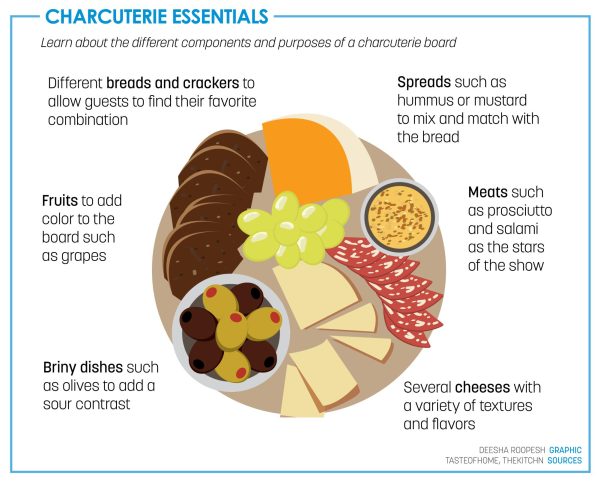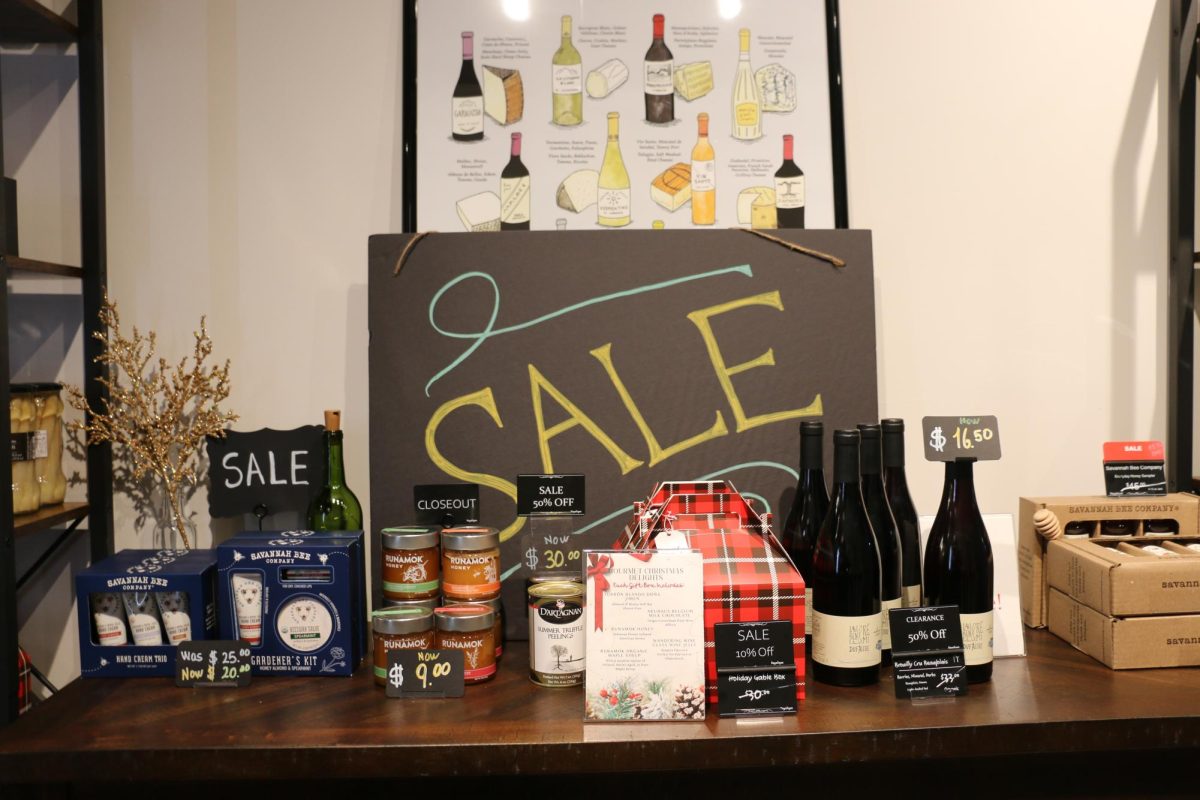For senior Nancy Zhang, exploring different cultures’ foods has served as an opportunity to learn about a culture’s traditions.
“Food serves as an educational tool for many,” Zhang said. “We can learn about different traditions and customs and rituals for making each dish, which also helps us learn more about the history of those cultures.”
Zhang said trying cultural foods has given her insight on a culture’s customs.
“I have attended food festivals and events where I have gotten the opportunity to try dishes from my friends’ cultures and it was a really fun experience,” Zhang said. “It definitely helps with better understanding others’ backgrounds.”
Culinary teacher Chad Young agreed and said people can better understand a culture’s history through its food.
“For example, we have Black History Month coming up and I will introduce soul food to my students because many of them don’t have access to it, and I think it’s important that they learn about those foods,” Young said.
Zhang said local eating events are important to expose Carmel residents to foods they may not be familiar with.
“For many, they aren’t used to those different foods and local events and festivals are very helpful with sharing those differences,” Zhang said. “Currently at CHS there’s this culture surrounding school food where every option is Americanized.”
With this goal in mind, Regalique, a gourmet food and wine boutique in Carmel, hosts a sampling of its international gourmet products, featuring a collection of chocolates, charcuterie, cheeses and beverages, recurring every Friday from 5 to 8 p.m.

According to Jexy Rowe, co-owner of Regalique, their products are sourced from countries in Europe and different places around the United States.
“We offer products from Europe, mostly Italy, France, and Spain, as well as from the U.S. with some local products from Indiana as well,” Rowe said. “We focus on quality, uniqueness and creativity of the products. That is what distinguishes gourmet foods from regular foods. You don’t just get a product–you get an experience.”
Rowe said the recurring event provides customers with a unique experience that enhances their understanding of a culture’s identity.
“Food connects and unifies people from different backgrounds and experiences,” Rowe said. “By learning more about food from other cultures, we also learn about the history, geography, climate, economy and many other factors that make each country or region unique. It allows us to understand them better and appreciate their contributions to the culinary world.”
Ultimately, Young said that food is one of the most important factors in bridging the divide between cultures.
“It is a universal language–we all eat, we all use it as a way of connecting to family and friends, and to celebrate different holidays. Food is always the center and forefront of celebrations.”
















































































![Review: “The Immortal Soul Salvage Yard:” A criminally underrated poetry collection [MUSE]](https://hilite.org/wp-content/uploads/2025/03/71cju6TvqmL._AC_UF10001000_QL80_.jpg)
![Review: "Dog Man" is Unapologetically Chaotic [MUSE]](https://hilite.org/wp-content/uploads/2025/03/dogman-1200x700.jpg)
![Review: "Ne Zha 2": The WeChat family reunion I didn’t know I needed [MUSE]](https://hilite.org/wp-content/uploads/2025/03/unnamed-4.png)
![Review in Print: Maripaz Villar brings a delightfully unique style to the world of WEBTOON [MUSE]](https://hilite.org/wp-content/uploads/2023/12/maripazcover-1200x960.jpg)
![Review: “The Sword of Kaigen” is a masterpiece [MUSE]](https://hilite.org/wp-content/uploads/2023/11/Screenshot-2023-11-26-201051.png)
![Review: Gateron Oil Kings, great linear switches, okay price [MUSE]](https://hilite.org/wp-content/uploads/2023/11/Screenshot-2023-11-26-200553.png)
![Review: “A Haunting in Venice” is a significant improvement from other Agatha Christie adaptations [MUSE]](https://hilite.org/wp-content/uploads/2023/11/e7ee2938a6d422669771bce6d8088521.jpg)
![Review: A Thanksgiving story from elementary school, still just as interesting [MUSE]](https://hilite.org/wp-content/uploads/2023/11/Screenshot-2023-11-26-195514-987x1200.png)
![Review: "When I Fly Towards You", cute, uplifting youth drama [MUSE]](https://hilite.org/wp-content/uploads/2023/09/When-I-Fly-Towards-You-Chinese-drama.png)
![Postcards from Muse: Hawaii Travel Diary [MUSE]](https://hilite.org/wp-content/uploads/2023/09/My-project-1-1200x1200.jpg)
![Review: "Ladybug & Cat Noir: The Movie," departure from original show [MUSE]](https://hilite.org/wp-content/uploads/2023/09/Ladybug__Cat_Noir_-_The_Movie_poster.jpg)
![Review in Print: "Hidden Love" is the cute, uplifting drama everyone needs [MUSE]](https://hilite.org/wp-content/uploads/2023/09/hiddenlovecover-e1693597208225-1030x1200.png)
![Review in Print: "Heartstopper" is the heartwarming queer romance we all need [MUSE]](https://hilite.org/wp-content/uploads/2023/08/museheartstoppercover-1200x654.png)




